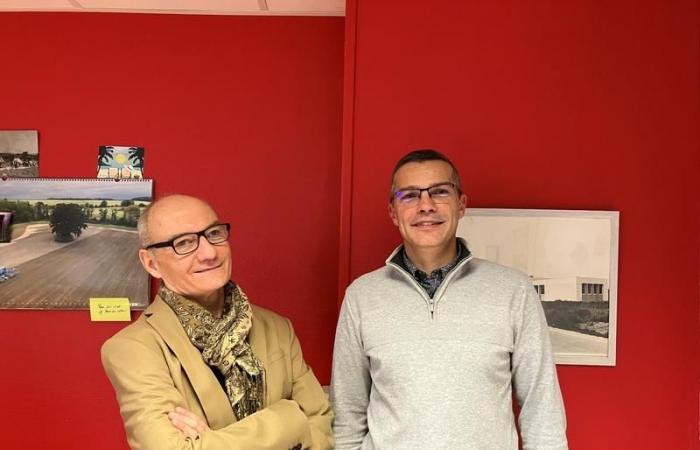Operations managers who hire apprentices Everyone has their own expectations. “ Some take on an apprentice with the aim of training him in their own way and then keeping him. Others want to pass on a taste for the profession with a concern for renewal of generations. Still others have been apprentices and want to reproduce what they experienced. And there are those who are looking for cheap labor; we spot them quickly! », explains Laurent Gaudre, director of the CFAA/CFPPA of the Charente agro-viticole Campus.
Apprentices from the Charente training center have no difficulty finding a apprenticeship master. Two-thirds of the 200 apprentices have generally found their apprentice master by the month of June preceding the start of the school year, and in September, less than ten of them have not yet had one, reveals Pascal Basset, his development manager on the learning and continuing education. “ Even if they have fewer and fewer farming parents, young people easily find uncles and neighbors in their entourage because they often live in rural areas. “. And if they don’t find it, training center is there to help them. “ We have a file of 225 farmers who volunteer to receive apprentices and this number remains stable from one year to the next. “. The apprentice’s low mobility is often the blocking point. “ We aim to find a farm at a maximum distance of 20 to 30 km from the apprentice’s place of residence. », specifies Pascal Basset.
State aid for hiring an apprentice
The apprenticeship contract is an employment contract concluded between an operator and an apprentice, over the duration of the training (2 or 3 years). The apprenticeship master pays a monthly salaryfixed as a percentage of the minimum wage. The rate is established based on theage of apprentice and its progression in the training cycle. Remuneration varies between 27% and 100% of the minimum wage. For example, apprentices who are between 16 and 17 years old (or younger) are paid 27% of the minimum wage in the first year, 39% in the second, and 55% in the third year. Those aged between 18 and 20 are paid 43%, 51% and 67% of the minimum wage…
Salary is exempt from employer contributions (except the work accident and occupational illness contribution) and for the apprentice it is exempt from taxes. Whatever the training level of the apprentice, a apprenticeship master receives €6,000 at the start of the contract. “ The first year of an apprentice aged 17 or under therefore costs the operator nothing », specifies Laurent Gaudre. The contract is signed between June and the end of the year. “ We advise our students to do an internship during the summer in the farm they have chosen to check that it suits them well. », Indicates Pascal Basset.
Support from the training center
Pascal Basset indicates that the Charentais training center carries out a lot of monitoring and management work apprenticeship contracts. « Each apprenticeship is subject to three visits by a trainer to the farm, the first of which from the start “. The development manager continues by indicating that after each operating period, one hour is devoted to feedback from the apprentice on the past period. “ There is no apprentice who decides to leave a farm without knowing why. We meet the internship supervisor if things go badly and we don’t leave an apprentice without a solution in the event of a problem. ».
The apprentices of Charente campus Each year, around 5% change farms during training, but they very quickly find another apprentice master. “ In the case of more serious difficulties, the training center has set up socio-professional support, once a month with a professional, the apprenticeship master, the family if necessary and myself », Indicates the director of CFAA/CFPPA. Apprentices in training CAPA (certificate of professional agricultural aptitude) are less mature than Bac Pro or BTSdiscipline problems are more frequent, but Laurent Gaudre specifies that this often happens better on the farm than at the center…
100% of apprentices Charente training center find work at the end of their contract. This is proof that apprenticeship in agriculture is a success. And often, operators offer a CDI to their apprentice even before the end of their training and the final exam. “ Farm managers are competing for agricultural machinery drivers and some young people prefer a job contract rather than a diploma. » lament Laurent Gaudre and Pascal Basset.






